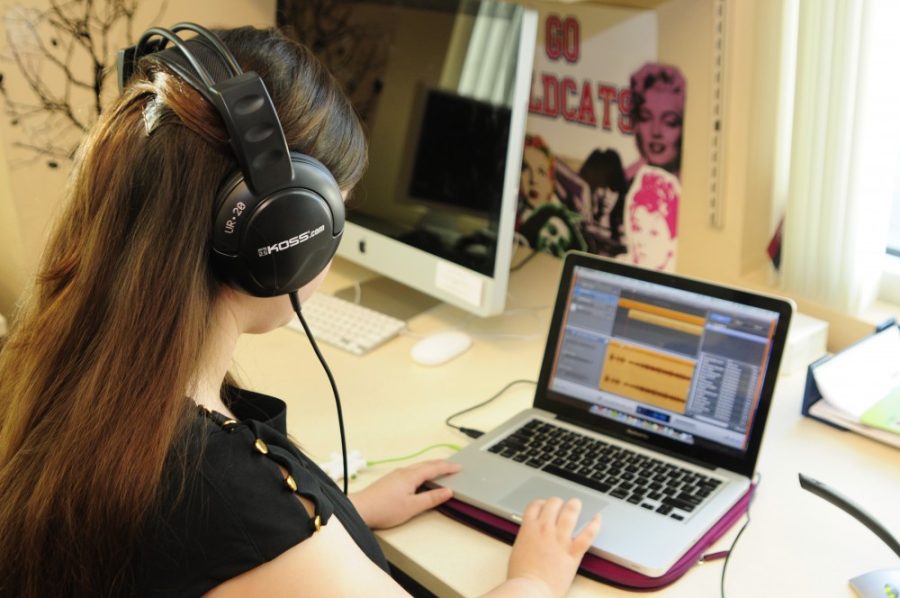After nine months of inactivity, ASUA’s free but unfunded podcast has returned to show the lighter side of student government.
The idea of the ZonaCast podcast, which restarted on Jan. 26, is to help better represent the voice of the students, according to Alyssa Guzman, the communications director of the Associated Students of the University of Arizona. The podcast is released every Friday.
“The idea behind it was to create another portable media format for college students because we are always on the go,” said ASUA President Katy Murray. “We are always trying to do everything on our mobile phones, so this was just another format and platform to access the student body.”
ZonaCast began more than a year ago with Dylan Duniho, the communications director of ASUA under 2011-2012 student body president James Allen, according to Murray. Duniho is currently the vice chair of external affairs for the Arizona Students’ Association.
“It was designed to be a fun outlet to reach students,” Duniho said.
The podcast had been on a break since last April, but it has now been re-incorporated into ASUA’s arsenal to get students more involved. It didn’t run for awhile because of the time commitment required to produce it, according to Evan Reed, a junior studying communications and marketing and a co-host of the podcast.
Last year, Duniho got into a rhythm of doing the podcast weekly, but once finals rolled around and positions changed in ASUA, it fell apart, Reed said. The goal is to start releasing the podcast weekly again.
However, as of now, the program is unfunded, and there is no set studio.
“Lately, we have been doing it at our own houses, but we are trying to get to reserve a studio with KAMP on a weekly basis because it is better sound quality,” Guzman said.
Although the program has no funding yet, co-host and assistant communications director Bryce Villalpando said she doesn’t think it will be a problem.
“We have all the equipment we need to use, and I can’t really see us needing funds in the future because our main goal with the podcast is to make it a student who wants to talk about whatever they want to talk about,” Villalpando said.
For the first show, a student came on the podcast and talked about his opinions on the president and anything else he wanted, Guzman said. The idea is to help better represent the voice of the students, which ASUA is meant to do, she added.
Last week, the interviewee was Daniel Thomson, a theatre arts
student and a member of The Charles Darwin Experience, an improv comedy group on campus. This Friday, a resident assistant will talk about her experiences with her position in Residence Life.
The podcast is a good way to get students involved in voicing their opinions about the student government or about whatever they want to talk about, said Reed. Reed will host his first show within the next few weeks.
“I think it’s a good idea for the student government,” said Mario Ramirez, an undeclared sophomore. “You want to hear about what people have to say.”
By trying to bring in students to voice their opinions, it will “give it a better demographic,” he added.
However, ASUA also faces the obstacle of gaining visibility for the podcast. Even though ASUA is the student government and represents the student body, some students are still not aware of what its members do.
“I know nothing about it,” said Mathilde Westermann, an ecology and evolutionary biology junior. “I don’t think I am informed enough about this [the ASUA or podcast].”









